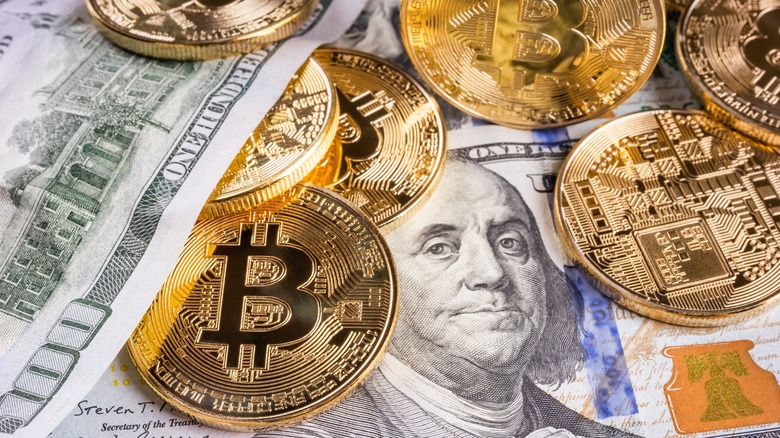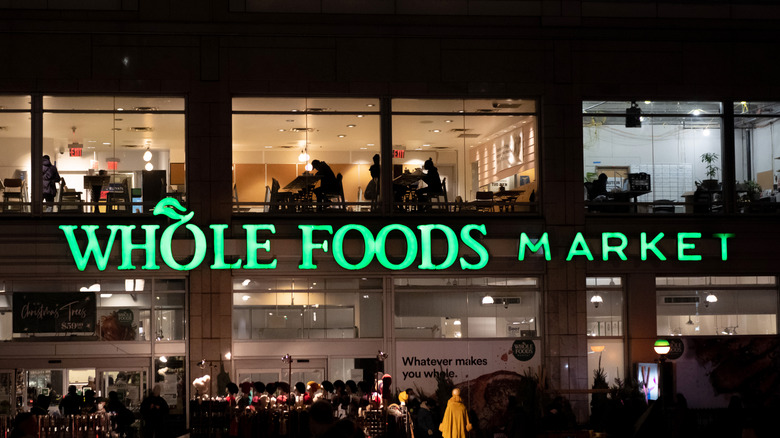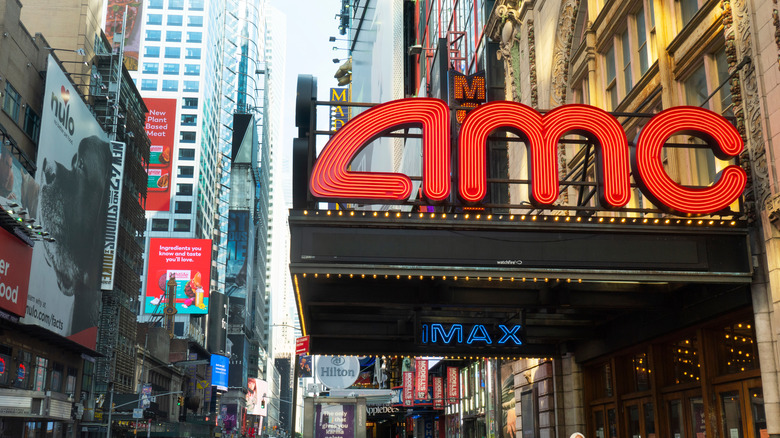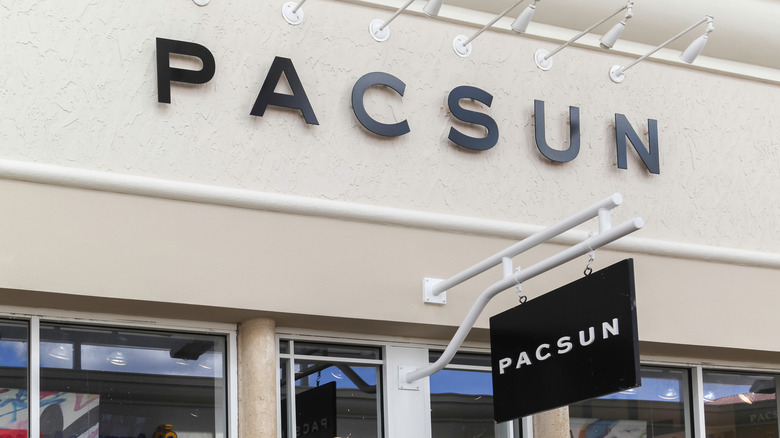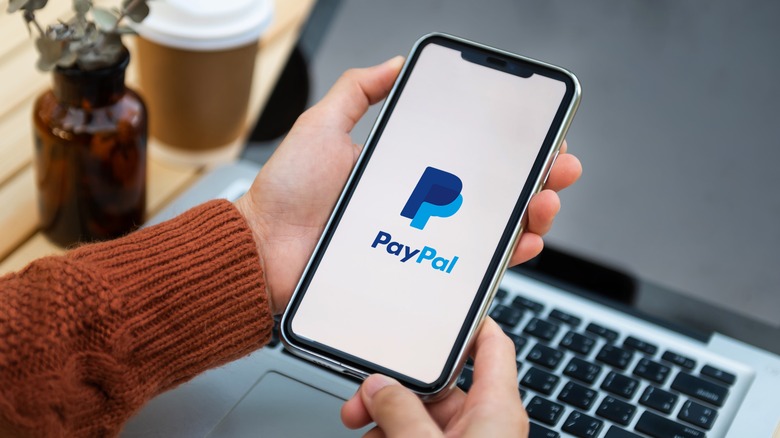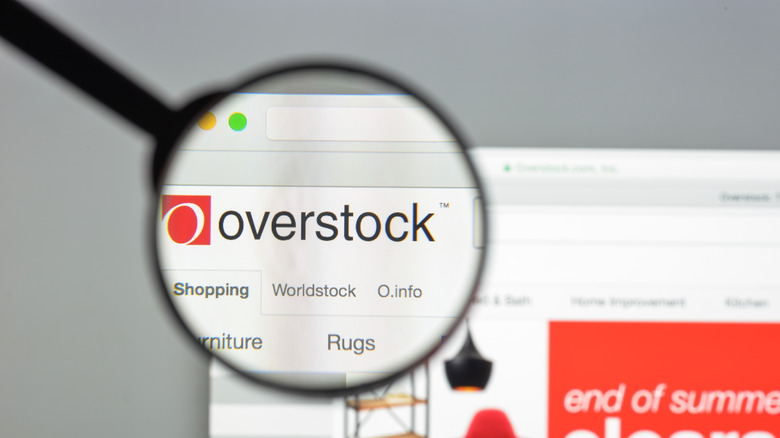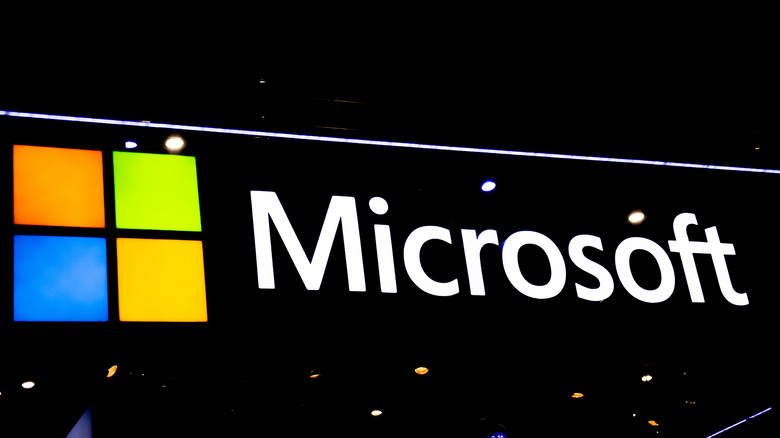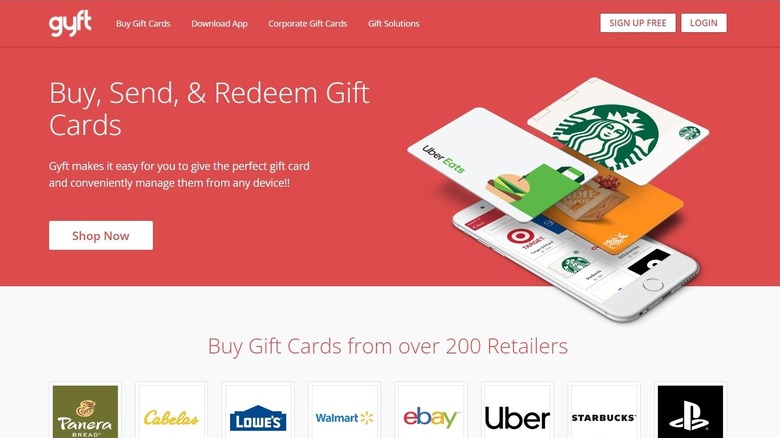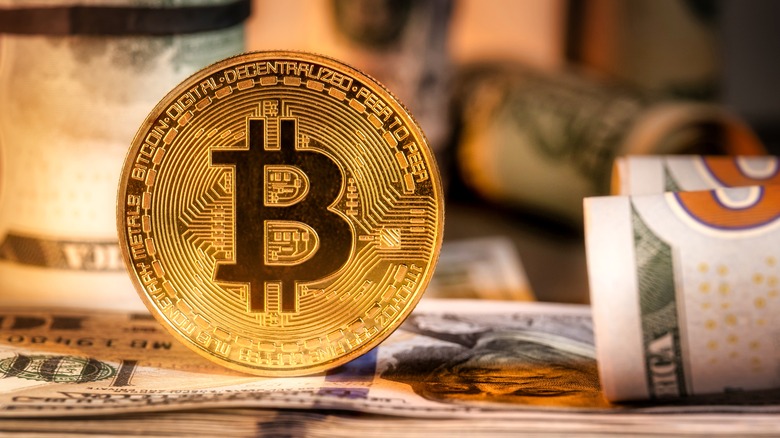10 Major Companies That Will Let You Pay With Crypto
The cryptocurrency market is currently in what many are calling a "crypto winter," with coin values plummeting across the board and major exchanges like Celsius freezing user accounts amid "extreme market conditions." However, despite all the bad news, there's one aspect of this cryptocurrency system that is continuing to improve, and that's the number of ways that users can spend their coins across retailers. Fueled by the surge of public interest through 2020 and 2021, more major companies than ever now accept currencies like bitcoin and ether, either directly or through partner payment platforms.
Early adopters of blockchain-based payments were mostly within the technology and media sector, but now it's possible to pay for groceries, furniture, and even cinema tickets without ever needing to resort to dollars. Bitcoin is still the most widely accepted cryptocurrency for payment, but many retailers now also accept alternatives ranging from litecoin to shiba inu. Giving up fiat currency is now easier than ever, despite the fact that current crypto payment systems are still far from perfect.
Whole Foods
Despite the fact that its parent company Amazon has yet to fully embrace cryptocurrency, supermarket chain Whole Foods has allowed customers to pay with digital currency since 2019. Shoppers can pay for their Whole Foods grocery run with Spedn, an app powered by the Flexa network that accepts payments in bitcoin, bitcoin cash, and ether. The network also has similar partnerships with other major retailers including Nordstrom, GameStop, and Jamba Juice.
By using the Flexa network, Whole Foods doesn't actually take payment directly, rather the Spedn app produces a QR code that can be scanned at checkout. This code allows Flexa to pay Whole Foods in dollars while charging customers in cryptocurrency, shielding the retailer from common blockchain issues, like varying transaction times and fees. The whole system is facilitated by a separate coin called FlexaCoin, which acts as an intermediary token between dollars and bitcoin payment. Payment platforms like these are vital for the widespread adoption of crypto, as they allow retailers to gauge demand for blockchain-based payments without the cost and hassle of setting up the relevant infrastructure themselves.
AMC Theatres
Another popular payment platform is BitPay, which has partnered with a number of major companies including AMC Theatres. AMC is the biggest theater chain in America, with over 200 million customers each year. From March 2022, the company accepted payments in a wide range of cryptocurrencies on its website, including those from organizations like bitcoin, ether, bitcoin cash, litecoin, shiba inu, and dogecoin. AMC also launched the feature on its mobile app in early 2022.
AMC has always been an innovative company. According to its website, it was the first in America to build a multiplex cinema and one of the first to offer online ticketing. So, it makes sense that the company is the first major chain to jump on the cryptocurrency bandwagon. If nothing else, AMC is badly in need of some fresh revenue streams, as a poorly-timed acquisition spree and the Covid-19 pandemic left it teetering on the edge of bankruptcy in 2021. Hopefully, its adoption of this new tech will pay dividends for the company's bottom line in the near future.
Twitch
Another Amazon-owned business that's been keen to adopt cryptocurrency is the video-streaming platform Twitch. It first began letting users pay for subscriptions and services with crypto in 2014, although it has twice removed support for blockchain-based payments since then. The first removal was down to one of Twitch's payment partners removing their support for bitcoin, but then shortly after, the streaming giant partnered with Coinbase to reinstate BTC payments. Then, at the start of 2019, Twitch quietly removed the ability to pay with crypto again, before changing its mind a second time and bringing back the feature in June.
It seems that, since then, Twitch has been more bullish on the long-term prospects of the technology, even offering users a 10 percent discount in 2020 if they paid with cryptocurrency. The company's current crypto payment processor is BitPay, a platform that is emerging as a market leader for mainstream retailers wanting to enter the crypto world.
Starbucks
Beginning in March 2021, U.S.-based Starbucks customers can pay for their coffee through crypto thanks to the company's partnership with fintech startup Bakkt. Bakkt was founded in 2018 with a unique premise: take digital assets like loyalty points, frequent flyer miles, and cryptocurrencies, and put them all in one place, then make them easy to convert into dollars to spend at retailers. Users with Bakkt accounts can link their crypto wallets to the Starbucks app, then it's as simple as setting the default payment currency to BTC, and topping up their Starbucks card directly from their wallet.
It's worth noting that the only way to pay with bitcoin is through using a Starbucks card, and at present, there's no way to directly pay with a wallet in-store. However, according to Bloomberg, other Bakkt partners like GolfNow have integrated payment options at checkout, so it's possible that if the initial crypto scheme is popular enough, Starbucks will also make direct payments available in-store in the near future.
Pacsun
Pacsun became the first major fashion retailer to accept crypto through a partnership with BitPay, first unveiled in October 2021. In its press release announcing the move, the company claimed that its adoption of crypto was for two reasons. Firstly, the company stressed its youth-focused credentials, saying that digital payments will "resonate with [Gen Z] on a more personal level," and secondly, it said that crypto made the checkout process easier. While the first point is only really relevant to the brand itself, its belief that checkout is inherently easier with crypto could resonate with a much wider range of retailers.
Pacsun's President, Brie Olson, seemed to agree, stating that she thought that many other fashion companies would be following suit by offering integrated crypto payments in the near future. So far, that prediction doesn't seem to have come true, but then perhaps the recent market turmoil has caused other companies to halt their expansion plans until there's less volatility in the space.
PayPal
Payment processing platform PayPal launched a new feature in March 2021 called Checkout With Crypto, and, well, the name is pretty self-explanatory. PayPal users are able to use digital currency to pay at all 29 million merchants that use the platform. Much like other payment processors, PayPal sends dollars or other fiat currency to the vendor, then deducts an equivalent amount of crypto directly from a user's wallet. The exact amount of, say, bitcoin, is shown before the user completes the transaction, so buyers can check they're getting a conversion rate they're happy with.
PayPal also lets users hold cryptocurrency directly through its app, alongside USD and any other fiat currencies. In that sense, it's about the closest thing to a traditional bank account that works with both fiat and cryptocurrency that's currently offered in the market. At present, the only markets where integrated crypto support is offered for PayPal are the US and the UK, but the company has stated it intends to launch the feature in select other markets in the future.
Overstock
Online furniture and gadgets retailer Overstock first began accepting bitcoin payments through a partnership with Coinbase in 2014, becoming the first major online retailer to do so. Over the years, the company has gradually expanded its scope to accept almost all major altcoins. Overstock allows users to pay for their initial order with crypto and allows refunds to be paid out in BTC and refunded straight to a customer's wallet, although the value of that refund is determined in USD rather than the original amount of BTC paid.
The company and its executives have remained vocal about the potential of blockchain technology since they first adopted it, and have invested tens of millions of dollars into firms working in the space. Overstock also launched its own token, tZERO, in 2017, although a lack of interest in the initial coin launch (ICO) contributed to the company's stock falling by 88% in the following year, according to Investopedia. Even with a disastrous token launch, Overstock's support of crypto remains unwavering, and if there are any new blockchain developments in the future, the company is likely to be one of the first to integrate them.
Microsoft
Another early adopter of crypto technology, Microsoft has been accepting bitcoin as a form of payment through its online store since 2014. Like many others, it uses BitPay as a payment processor. Cointelegraph reports that Microsoft's bitcoin payment system has been shut down a number of times since it first debuted, primarily due to high volatility levels within the market. Nevertheless, the company has recently taken steps to improve its presence in the Web 3.0 world, hiring a "Director of Business Development for Cryptocurrencies" in February 2022.
The company was also awarded a patent in 2021 for a ledger-independent system to develop and manage tokens across different networks, a sure sign that it plans to further increase its influence in the crypto space in the near future. Despite Microsoft's continued work in the sector, the firm's founder Bill Gates has publicly denounced cryptocurrency, infamously saying that the whole market is "100% based on greater fool theory" in an interview in June 2022.
Quiznos
Sandwich chain Quiznos teamed up with payment platform Bakkt in 2021 to begin offering bitcoin payments for the first time. Users can download the Bakkt app and pay through their phone at select locations, mostly in and around Denver, Colorado at present, but with the goal of expanding if the pilot is successful. The company also launched an introductory offer for first-time crypto users, offering $15 of free bitcoin to anyone who downloaded the Bakkt app, purchased bitcoin, and used it to pay for a meal.
The company has been quick to embrace other forms of blockchain technology, too, launching a collection of so-called "sandwich coins" as NFTs in collaboration with the digital artist Sameer Baloch in November 2021. Each drop was on sale for one day only, and proceeds went to World Central Kitchen, a non-profit organization dedicated to providing food to communities in crisis. The collection also offered the chance for two NFT holders to win $1,000 USD worth of dogecoin, and 33 holders to win Quiznos gift cards of varying amounts.
Gyft
Although not every company accepts payments in cryptocurrency yet, there's one foolproof way to be able to spend tokens at almost every major US retailer: through a gift card. California-based Gyft has been accepting payments for gift cards in bitcoin since 2013, and has cards available from over 200 retailers. These include some of the biggest names in America, with cards from the likes of Target, Uber, Walmart, Delta, and eBay all available to purchase. Most cards will hold up to $500 and can be purchased quickly and easily, with payment taken directly from a user's crypto wallet.
Although it might not be quite as convenient as just wandering into a store and paying with a debit card, Gyft offers a great alternative solution for buyers looking to make bigger one-time purchases with crypto, or smaller transactions at a store they visit frequently. Although, it's worth noting that some of the retailers listed on Gyft, such as Starbucks and Whole Foods, already support crypto payments separately through their own online platforms.
What problems are there with cryptocurrency payments?
Although paying with crypto is now easier than ever, there are a few tax implications that buyers should be aware of before they link their wallets and start shopping. The biggest issue is that paying for real-life goods with crypto coins is considered the same as selling an investment by the IRS. So, if the value of that coin has gone up between when the buyer purchased it and when they spent it, they could be liable for capital gains tax. Likewise, if it has gone down, it could be considered a tax write-off. With bitcoin and its rivals being as volatile as they are, it means that, in theory, every store transaction purchased with crypto might have to be listed on a tax return at the end of the year.
Now, this isn't necessarily a dealbreaker, as platforms like PayPal do keep track of taxable transactions and include the relevant tax forms for buyers at the end of the year. But not every payment processor is so helpful, so buyers paying with crypto across multiple platforms might find themselves having to work out gains and losses on each individual transaction when it's time to fill out their returns. Hopefully, regulators and exchanges will find a way around this in the near future. But for now, it's a big limitation on the current system, and it offsets much of the convenience that paying with crypto can bring.
